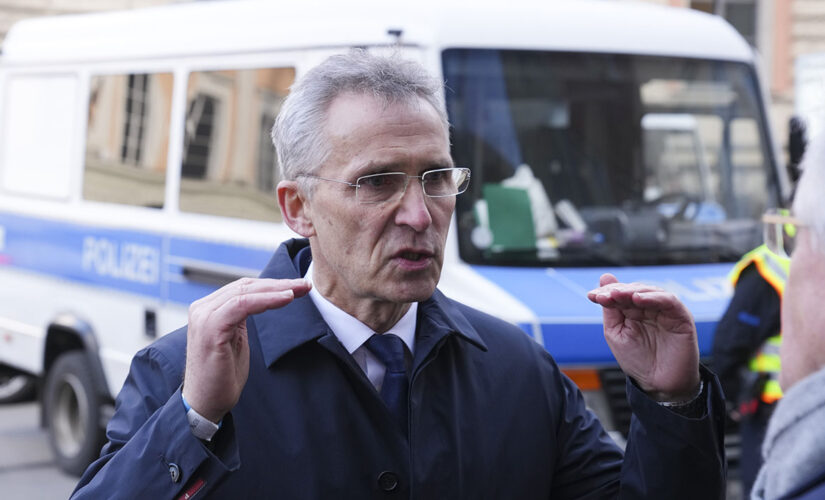NEWYou can now listen to Fox News articles!
NATO Secretary-General Jens Stoltenberg on Sunday said of the current build-up of troops at the Ukrainian border that it appeared “Russia is preparing for an invasion of Ukraine” and stressed that while it is not too late for Moscow to change course against an armed attack, there is a “new normal in European security.”
Stoltenberg’s remarks come as President Biden has called an urgent meeting of his National Security Council Sunday.
“Last week, actually, Russia said that they will step back. Russia is stepping up with more troops and higher and even closer to the Ukrainian border,” Stoltenberg, speaking from Brussels, told CBS’ “Face The Nation” host Margaret Brennan. “Also, the fact that this exercise, they said, should end today will now continue. So, all of this fits into the picture that Russia is preparing for an invasion of Ukraine.”
BLINKEN RESPONDS TO ZELENSKYY’S PLEA: NO SANCTIONS UNTIL ‘BOMBS ARE ACTUALLY DROPPING’
Russian President Vladimir Putin personally oversaw some strategic nuclear exercises Saturday, something Stoltenberg saw as a way for Moscow to demonstrate their capabilities.
Though it was a “regular exercise,” it was planned for last fall but instead took place “in the midst of this significant Russian military build-up in and around Ukraine with the largest concentration of combat troops I’ve seen in Europe since the end of the Cold War,” Stoltenberg said.
Stoltenberg asserted there “has been a crisis in the making for a long time,” as NATO has been working to gradually increase its presence in the eastern flank since Russia annexed Crimea in 2014. With Russia and Belarus stating its troops will remain in the north of Ukraine, Stoltenberg said NATO has made additional reinforcements in recent weeks and months.
“I think what we are now faced with is a new normal in European security. We see Russia being willing to contest fundamental values for our security by the use of force and also by the threat of use of force,” Stoltenberg said. “We have reinforced and implemented the biggest reinforcement of collective defense since the end of the Cold War, with battlegroups in the Baltic region, in Poland, with increased defense spending every year since 2014 and with a higher readiness of the NATO forces.”
He also acknowledged the potential of a refugee crisis if Russia does invade Ukraine.
“The most important thing is to prevent a new armed attack on Ukraine, and therefore we support all efforts by NATO allies to find a political solution, and NATO’s also ready to sit down in the NATO-Russia Council with Russia. If Russia decides to use force, that may, of course, be a large number of people fleeing Ukraine,” Stoltenberg said, adding that the NATO Response Force will be prepared to deploy to offer assistance in neighboring countries like Poland and Romania.
Speaking at the Munich Security Conference in Germany Saturday, Ukrainian President Volodymyr Zelenskyy called on his country’s allies to do more, arguing that Ukraine is being treated as a buffer state between the West and Russia. When pressed by Brennan Sunday about the issue, Stoltenberg said NATO does not have a set date for when Ukraine might become a member of the bloc.
CLICK HERE TO GET THE FOX NEWS APP
“We have not set any timeline for that,” Stoltenberg said. “NATO allies have been very clear that it is for Ukraine and 30 NATO allies to decide on membership and not Russia. And second, we have provided over many years significant support to Ukraine.”
“We help them to modernize the defense and security institutions to strengthen their cyber defenses,” he continued. “NATO allies, the United States, United Kingdom, Canada and others have also provided significant training and different kinds of military equipment, defensive weapons. So, the Ukrainian Armed Forces are much stronger now with better equipped, better trained troops than in 2014. And this is not least because of all the support that NATO’s allies have provided over all these years.”




